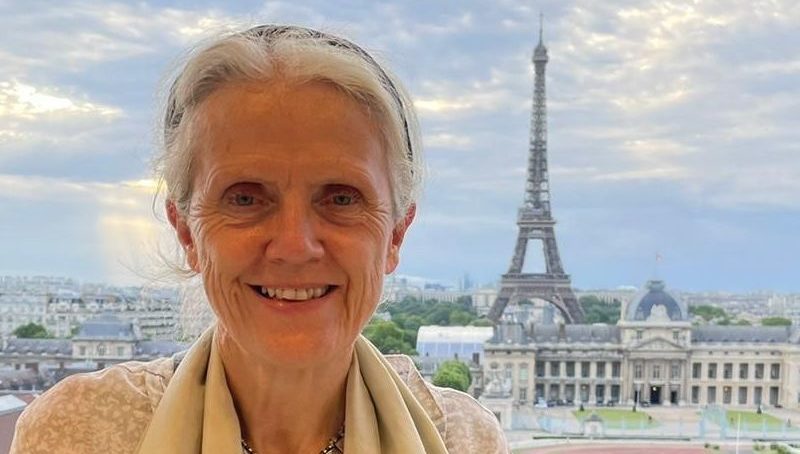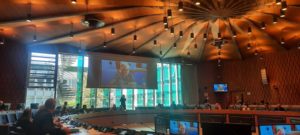6th July 2022
Tackling the education crisis: our priorities for the Transforming Education Summit

I joined the Foreign, Commonwealth & Development Office (FCDO) Girls’ Education Department almost 10 weeks ago. Since then there have been multiple mentions of the ‘Transforming Education Summit’; the TES. I have just returned from Paris where, with Laura Davies, our Ambassador to UNESCO, I was representing FCDO at the TES pre-Summit. Held to build momentum for the main Leader-level Summit in New York in September, in the margins of the United Nations General Assembly (UNGA).
It has been quite a week – exhilarating and demanding in equal measure. Raising more questions than answers, for now.
We are in the midst of a global education crisis; exacerbated by the pandemic. Children not in school; children in school but not learning; children in school and learning, but learning the wrong things. So a pre-Summit to shape the direction and priorities for the main Summit. To give it the best chance of success. To go where no Summit has gone before to get Sustainable Development Goal (SDG) 4 back on track.

As the UK, we are clear on our priorities for September and the months that follow.
Children everywhere must be supported:
- to catch up the learning lost due to COVID-19
- prioritising learning the basics; for all, but especially the most marginalised
- working towards gender equality, in and through education, and
- developing innovative financing sources to make it all happen
I was struck across discussions at the pre-Summit how foundational learning for the most marginalised will have an impact on all the other SDGs. Without learning to read, do basic maths, and gain social skills (learning how to learn), children will not be able to complete 12 years of quality education. They will not be able to go to college or university, get a good job or care for their families, support their communities. This is not about limiting a child’s education to the basics; but about giving them strong foundations to build on. Giving them options and choice.
If a girl is learning in school, and she and her family can see this, then she is more likely to stay in school. And staying in school not only opens doors for her future education, but also keeps her safe. A girl not in school is more likely to suffer violence and/or sexual abuse, end up in child labour, marry young, and have more children.
We must find a way to reach every child, not just the easiest to support. That girl who is hardest to reach. The girl born into poverty; who lives in a remote rural area, in a refugee camp, or caught up in conflict; who is perhaps disabled; or malnourished. The most vulnerable and marginalised. If we can reach that girl, and make sure she is learning and thriving in school, then we can do the same for all children. Girls and boys.

To make the system-wide policy and delivery reforms they want, developing countries need more money. At a difficult time, when donor Official Development Assistance (ODA) allocations for education are going down. So we know we need innovative solutions to increase funding flows for education. The UK has supported the International Finance Facility for Education since its inception. At the pre-Summit, Minister Ford was able to tell the pre-Summit attendees, including some 150 ministers of education, that we are committing seed capital to help create this new education financing mechanism. To multiply donor resources and give countries access to urgent affordable financing to recover from the learning crisis.
Our ambition for the Summit in September is sky high. The challenge facing us all is to turn the conversation and energy from the pre-Summit into concrete, sustainable action for which we are all held to account. In large part, by the next generation.
This really is a crisis. Not one that feels as urgent or as visible as the pandemic perhaps. But urgent, nonetheless. There is no easy solution. We have no education vaccine. But we do have energy, passion, and a responsibility to deliver for that girl; and for all girls and boys across the globe.
Those of us working in education have known for decades that foundational skills for the marginalised are needed. UKAID has always been at the forefront and a respected partner. I hope it continues.
For the marginalised to be reached there needs to be an openness to alternative ways of reaching them while systems develop to include them, especially in early years education which shows the greatest gain and contribution to equity.
Let’s do it!